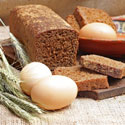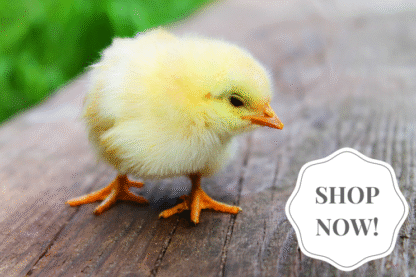
Homegrown chicken eggs are seasonal. Sometimes you have too many, sometimes not enough. Here are five ways to extend the shelf life of your fresh homegrown eggs, to preserve the surplus for days when your hens take a vacation from laying.
1. Do Nothing
You may be surprised to learn how long clean, fresh, unwashed eggs will keep. At a room temperature of 70ºF they will keep for two to three weeks, assuming they have never been refrigerated. (A refrigerated egg that is moved to room temperature will develop condensation, which can cause bacteria to enter through the porous shell.)
In the fridge, eggs will keep well for 30 to 45 days. In cold storage, where the temperature is a steady 30ºF, eggs will keep for up to nine months. Hard cooked eggs, by the way, left in the shell and refrigerated, will keep for no more than two weeks.
2. Freeze Eggs
Eggs frozen at a temperature of 0°F will keep for up to one year. A handy way to freeze eggs is in ice cube trays. Once the egg cubes have frozen, remove them from the trays and store them in an air-tight freezer container.
Eggs may be frozen whole, but must first be removed from the shell, otherwise they’ll expand and burst. Break the contents into a bowl, gently stir just enough to blend the yolks with the whites, and press the eggs through a sieve to break up the thick albumen. Three tablespoons of thawed whole egg equals one large fresh egg.
You could freeze the yolks separately from the whites, if you wish to later whip the whites. Break the eggs carefully to avoid getting any yolk into the whites, otherwise you’ll have trouble whipping them later. Press the whites through a sieve to break up the thick albumen. Thawed whites, warmed to room temperature for 30 minutes, will whip just like fresh ones. Two tablespoons of thawed egg white equals the white of one large egg.
To prevent separated yolks from getting gummy, add either 1/8 teaspoon salt or ½ tablespoon sweetener (honey, corn syrup or sugar) per four yolks. Thaw frozen yolks overnight in the refrigerator or in airtight containers placed in cool (50°F to 60°F) water. One tablespoon thawed yolk equals the yolk of one large egg.
Instead of freezing the eggs themselves, bake them into your favorite egg-based pastries and freeze them for quick-thaw desserts. Or freeze surplus eggs in a creamy rich custard ice cream.
3. Dehydrate Eggs
The best method for long-term storage is to dehydrate eggs in a regular food dryer. Eggs may be dried whole, or the yolks and whites may be dried separately. Reconstituted powdered eggs taste much the same as fresh or frozen eggs, and reconstituted whites will whip into a fluffy meringue.
One dozen dehydrated powdered eggs will fit into a half-pint canning jar and, tightly sealed, will keep for years. One tablespoon of egg powder plus one tablespoon of hot water roughly equals one egg. When using dried eggs for baking, add the egg powder with the dry ingredients and the water with the moist ingredients.
4. Pickle Eggs
Anyone who loves pickles will like pickled eggs. Pickling is an ideal way to use the eggs from bantam chickens or the first small eggs laid by pullets.
The easiest way to pickle eggs is to cover them in the brine left over from your favorite cucumber or other type of pickles.
Pickled eggs need time to absorb flavors from the brine: 1 to 2 weeks for small eggs, 2 to 4 weeks for larger eggs. Pickled eggs must be stored in the fridge and should be served within 4 months.
5. Make Eggnog
Eggnog is typically considered to be a winter holiday treat, but really good eggnog needs time to develop flavor and smoothness. The Laboratory of Bacterial Pathogenesis and Immunology at Rockefeller University has ascertained that raw-eggs-and-alcohol eggnog safely keeps in the fridge for at least six weeks. Experts say the growth of bacteria potentially present in the raw eggs is inhibited by the combination of refrigeration and alcohol. Here’s to the busy hens that lay plenty of eggs, giving you extras to preserve for future use.
And that’s today’s news from the Cackle Coop.
Gail Damerow, author, Storey’s Guide to Raising Chickens


